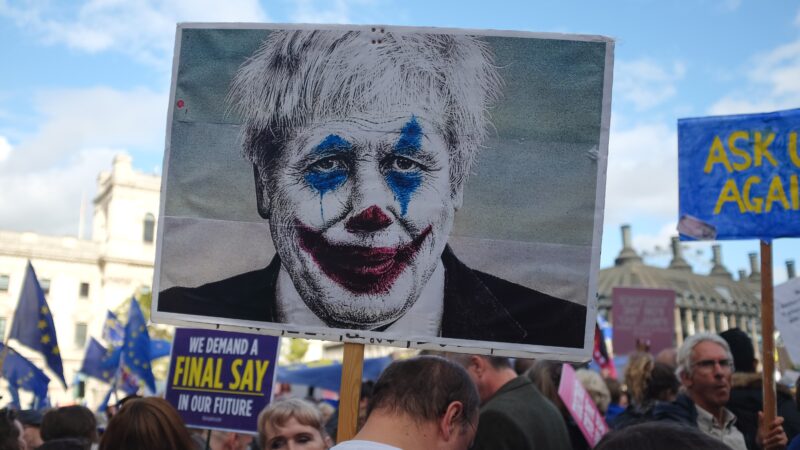“And the Word was made flesh, and dwelt among us full of grace and truth” – and so history began; the beginning of the perfect expression of the unchanging doctrine of the Church of God.
Turkey, gifts and – at least in my case – cigars are only incidental to the Birth of our Lord, and so I want to move past these things for this sermon. Other Holy Days in the Christian calendar are observed appropriately; Palm Sunday involves the distribution of palm crosses; Easter Sunday is when the Gloria is sung following its omission during Lent to mark the joyous occasion of the Resurrection of Jesus. So it is odd how many Christians mark Christmas with elaborately decorated trees, bright lights and lavish family gatherings, when the first Christmas celebration was meek, drab and in a stable.
We know through Scripture in the second chapter of Luke that the Christ spent his first hours in a stable, likely an unpleasant place to be for Joseph and the Blessed Virgin Mary – especially given how she had just given birth, and probably desired animal-free peace and quiet. Not only this, but on that same night three scruffy, ritually unclean shepherds arrive unannounced, excitedly, and very interested in the newborn Jesus. Contrary to popular belief, the Magi, or the Three Wise Men, did not arrive on the same night, and not at the stable, as the Shepherds. The 19th-century Bishop of Wakefield Walsham How wrote in his commentary on the Four Gospels that it is best to suppose that the visit of the Magi took place “at some period after the Purification and Presentation [of Jesus] in the Temple”, especially given how King Herod ordered the deaths of children aged up to two years when he had heard the Magi had not delivered Jesus to him. The gifts of gold, frankincense and myrrh associated with Christmas through the Magi were then not actually given on Christmas itself, making the day of the Birth of Jesus seem all the less glamorous. In other words, it was simple.
None of the aforementioned scripture is that which is appointed to be read on Christmas Day in the Book of Common Prayer; the Gospel reading is from John 1, beginning at the first verse. Returning to Bishop Walsham How, his commentary on the context behind the Gospel according to John reveals that as one of the Apostles closest to our Lord, John sought to “record the deeper spiritual truths” for more mature Christians. There is no better example of this than the reading for Christmas Day.
John’s Gospel talks of “the Word” in the beginning (the beginning before all time and creation which is eternal), and this is a term that has caused controversy. The roots of the Gnostic heresy were, in part, down to the understanding of who or what the Word of God is. Some believed that Jesus Christ is not the Word, and others believed that the Christ is a lesser being delegated to rule over us by a supreme god. John makes true doctrine clear throughout the passage: the Word was with God; the Word was God; all things were made by Him; the Word became flesh in Jesus Christ.
The several points made by John illustrate the crucial Father and Son relationship in the Trinity. The Word was with God to show that the Word is distinct and a person, not a mere attribute, but the Word is God to show that person is still very much God. This has always been so, as demonstrated in a parallel with Genesis when it is said that all things were made by Him. The Word of God is not some new creation – He has always been – but the Word did come into the world as a man at a certain point. It is by understanding John’s first chapter that we Christians can fully understand the Nativity.
Other prophets, such as Jeremiah, had births of special note to God, but there had been none up until now of this sort of significance. The person who had created everything, formed mankind and was the true, perfect expression of God’s Will became incarnate in an insignificant little stable, in one of many towns that people were moving to in order to register for a census. As mentioned earlier, the birth was simple in many respects, and it may feel odd to decorate Christmas with bright lights. Is this the full picture of Christmas, though?
St Luke tells us that angels appeared to the shepherds praising God and singing, and that they glorified the Lord. This day was almost certainly a day of celebration for them; the Angel of the Lord himself said that the news will bring “great joy”, though this was not the case for all. The Birth of Jesus caused a great stir in Jerusalem, and there was no-one more worried than King Herod about what he saw as a challenge to his earthly power. By both metrics of joy and fear, the Birth of the Christ was in no way insignificant for the world. The coming of the light of the world should be a time for great, significant joy and events – gathering families and enjoying the warmth of the Lord. Jesus’ Nativity was a simple affair, and yet it appears that we should mark this simple event elaborately.
The point was not to demonstrate to us to have an unpleasant birthday, or some more ludicrous interpretation, but that from such a humble nativity a Saviour was given to us. From a stable in Bethlehem, the years are dated and Christ’s Kingdom spread across the world – how greater will the greater Second Coming, in glory descending from the clouds, be? The anticipation for the Second Coming mirrors the anticipation one holds during Advent; perhaps we can use this time to reflect upon our own enthusiasm for this annual church festivity, and apply it to the wider wait for the coming judgement, when the faithful will be brought to Heaven.
As we, especially us in the more traditionalist churches, celebrate in the same way every year that God came to save us at first as a poor, helpless babe, let us reflect in the words of the Epistle for Christmas day reflecting on the temporal world; “they shall perish, but thou remainest; and they all shall wax old as doth a garment; and as a vesture shalt thou fold them up, and they shall be changed; but thou art the same, and thy years shall not fail”. Go forth, be merry, and remember that the Christ, your Saviour Jesus, came to this world to save sinners. Amen.



